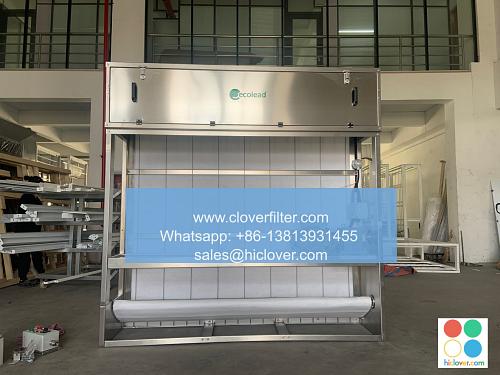The Environmental Impact of Air Filters

Air filters are a ubiquitous technology used in various applications, including indoor air quality management, heating, ventilation, and air conditioning (HVAC) systems, and air pollution control. While air filters play a crucial role in improving indoor air quality and protecting public health, their production, use, and disposal can have significant environmental impacts. This article aims to provide an in-depth analysis of the environmental impact of air filters, highlighting various application areas and discussing potential sustainability solutions.
Life Cycle Assessment of Air Filters
A life cycle assessment (LCA) of air filters reveals that their environmental impact is primarily associated with the production phase. The manufacturing process involves the use of raw materials, such as plastics, metals, and fibers, which can lead to resource depletion and greenhouse gas emissions. Additionally, the production process often involves energy consumption and waste generation, contributing to climate change and pollution.
Application Areas and Environmental Impacts
Air filters are used in various applications, including:
* Residential HVAC systems: Air filters used in residential HVAC systems can lead to energy consumption and greenhouse gas emissions associated with the production and transportation of filtered air.
* Industrial air pollution control: Air filters used in industrial settings can generate hazardous waste and contribute to air pollution if not properly maintained or disposed of.
* Automotive air filtration: Air filters used in vehicles can lead to resource depletion and waste generation associated with the production and disposal of filters.
* Medical air filtration: Air filters used in medical settings can generate biohazardous waste and contribute to infection control issues if not properly maintained or disposed of.
Sustainability Solutions
To mitigate the environmental impact of air filters, several sustainability solutions can be implemented, including:
* Design for recyclability: Air filter manufacturers can design filters with recyclable materials and components to reduce waste generation and promote circular economy practices.
* Energy-efficient production: Air filter manufacturers can adopt energy-efficient production processes to reduce greenhouse gas emissions and energy consumption.
* Sustainable materials: Air filter manufacturers can use sustainable materials, such as bioplastics or natural fibers, to reduce resource depletion and pollution.
* Proper maintenance and disposal: Air filter users can ensure proper maintenance and disposal of air filters to prevent hazardous waste generation and pollution.
Conclusion
The environmental impact of air filters is a complex issue that requires a comprehensive approach to mitigate. By understanding the life cycle assessment of air filters and implementing sustainability solutions, we can reduce the environmental impact of air filters and promote a more sustainable future. As the demand for air filters continues to grow, it is essential to prioritize sustainable design, energy-efficient production, and proper maintenance and disposal practices to minimize the environmental impact of air filters. You didn’t provide a prompt. What would you like to talk about? I can summarize a topic, answer a question, or engage in a conversation on a wide range of subjects. Please feel free to provide a prompt or ask me a question, and I’ll do my best to assist you!

